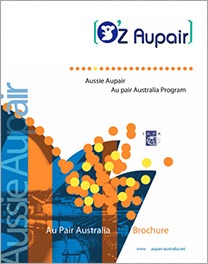General Interest
Australia is a highly developed country that combines natural beauty with the highest technology consolidation as a unique, attractive, it is worth knowing and travel. Moreover, its economic indices, the high quality of life and its multicultural society makes it one of the favorite destinations when it comes to travel.

Quality of Life
The Organization of the United Nations declared Australia as the second best country in the world to live, after Norway, due to their excellent quality of life indexes. This country has one of the lowest rates of air pollution, low costs of living, health service free, free primary and secondary education and of excellent quality, high security, low crime rates and higher growth in developed countries in the year 2003.
A study by the World Health Organization found that healthy life expectancy in Australia is 70.1 for men and 73.2 for women, placing it well above the Latin Americans, with a difference of between 10 and 15.
Education system
The Australian education system is recognized worldwide for its quality, is characterized by the integration of the entire territory under the same content, a common grading system and the use of latest technology. All schools, private or public, accept foreign students and provide specialist support in learning the English language. In universities foreign students make up between 5 and 10% of the total enrolment.
Sports
Australians give much value to the sport and have been highlighted in various disciplines throughout history. The sports figures are considered heroes and heroines, and nearly 60% of the population practice at least one sport regularly.
Over the weekend you can see thousands of people practicing their favorite sports outdoors. The most popular are the walks, swimming, aerobics-Fittness, golf and tennis, among others.
Growing economy
The Australian economy is in ensuring steady growth of investment, business development and job growth. The average annual growth of the last decade was 4.4%, annual inflation and interest rates are very low and the currency is strong and stable. It also has skilled manpower and support socio-democratic institutions.
In international trade, the economy is oriented toward the manufacture of products and services of high value. In recent years there has been a great development in the area of telecommunications and services and more than 470 companies have established their headquarters for Asia Pacific in Australia.
Multicultural society
Australia is a nation of immigrants who identify with values such as tolerance and a rejection of racial discrimination. The Australian population is made up of people who come from all corners of the world. About 23% of Australians were born in another country and over a quarter of the population have parents who were born abroad.
With the end of the Second World War the nation entered a period of economic boom, with the opening of mines and major projects for the construction of the nation. The 50s were a time of political stability based on the development of a thriving urban ownership society that facilitated the entry of immigrants into the country.
After decades of the 50 and 60, arrived in Australia a wave of non-English immigrants, mostly white, mostly from Europe and South East. These successive waves of migration to Australia completely transformed, especially in big cities.
Latins in Australia
Argentines, Brazilians, Chileans, Colombians, Mexicans, Peruvians, Venezuelans and Uruguayans, among others, have earned a place in Australian society, which found a space to express themselves and develop their own indigenous to their countries of origin. In any city in Australia may encounter a Mexican food restaurant, a club of Latino solidarity, an exhibition of indigenous crafts or take a club where salsa or tango classes.
Latinos, like all immigrant communities, do not suffer any discrimination and enjoy the social and economic welfare that this country offers them.
Non-discriminatory immigration policy
The Immigration Program of Australia underlines the importance of attracting new immigrants who have education or vocational training that might be useful for the country’s economic growth. However, Australia also receives immigrants for other reasons, such as family reunification or humanitarian grounds.
The Australian Government is fully committed to the antidiscrimination policy. In 1996, Prime Minister of Australia proposed a parliamentary statement on racial tolerance. The House of Representatives accepted the declaration unanimously. In that statement denouncing ethnic intolerance and reaffirming the principles of equal rights regardless of race, color, creed or origin.


 Age: 21, Nationality: American. I am a very motivated and determined person, when i set my ind to something. In the mean while I am looking to widen my experiences in life and explore what else the world has to offer me. I feel as though my love for children and this great program would be a great opportunity!
Age: 21, Nationality: American. I am a very motivated and determined person, when i set my ind to something. In the mean while I am looking to widen my experiences in life and explore what else the world has to offer me. I feel as though my love for children and this great program would be a great opportunity!
 Age: 20, Nationality: French.Dear family,I didn't choose Australia by luck. I think it's a really great country. But I didn't chose this job by luck too !. I really love to spend time with children, of all ages. Take care of them and help them in learning . I would like to be a real help for you.Those are the reasons why i've done my BAFA, and why I spent all my holiday time working with children
Age: 20, Nationality: French.Dear family,I didn't choose Australia by luck. I think it's a really great country. But I didn't chose this job by luck too !. I really love to spend time with children, of all ages. Take care of them and help them in learning . I would like to be a real help for you.Those are the reasons why i've done my BAFA, and why I spent all my holiday time working with children

 Age: 19, Nationality: German.I would like to travel and get to know other countries and their people.My nature is rather calm and I'm open-minded, but I might be a little shy in the beginning. Reliability, honesty and punctuality go without saying.
Age: 19, Nationality: German.I would like to travel and get to know other countries and their people.My nature is rather calm and I'm open-minded, but I might be a little shy in the beginning. Reliability, honesty and punctuality go without saying.
 Age: 22, Nationality: Canadian.I would love the chance to be apart of the family and take care of the kids any ages! I am very caring friendly and outgoing I am very close with my family I love them so much and I cannot wait to be apart of your family if I get the chance to.
Age: 22, Nationality: Canadian.I would love the chance to be apart of the family and take care of the kids any ages! I am very caring friendly and outgoing I am very close with my family I love them so much and I cannot wait to be apart of your family if I get the chance to.